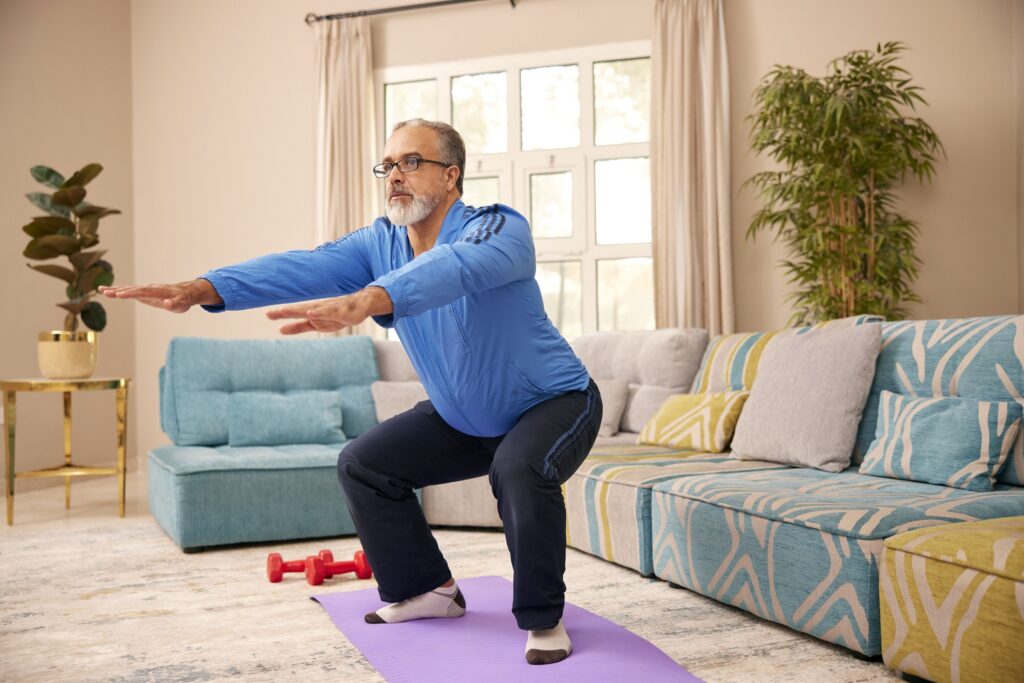By Abu Dhabi 360
Each year, National Heart Month is observed in February and Abu Dhabi 360, the recently launched emirate-wide wellness program, wants to take this opportunity and make sure you know how and why you should invest in your heart health.
But first. What is cardiovascular disease?
Cardiovascular disease, or heart disease, is the leading cause of death worldwide. An estimated 17.9 million people died from CVDs in 2019, representing a staggering 32% of all global deaths. It’s a significant problem and one that is rising in the UAE. According to a 2021 study by Cleveland Clinic Abu Dhabi, more than half of people in the UAE have been affected by heart disease. Year after year, it is responsible for about 40 percent of deaths in the country.
A 2022 study found that in the UAE, cardiovascular disease is happening among people 10 to 15 years younger than the average age worldwide. Some UAE doctors report seeing heart disease in people as young as 30 or 40 years old.

Cardiovascular disease affects your heart and circulatory system. It involves a fatty build-up of plaque in your blood vessels caused by too much cholesterol or sugar, smoking, or high blood pressure. This build-up can disrupt your blood flow and cause pain. If blood vessels become completely blocked, you can experience a sudden loss of blood flow to your organs, heart attack, or stroke, all of which can be devastating—even fatal.
If you have any of these, you could be at higher risk for cardiovascular disease:
- High cholesterol, high blood pressure, or diabetes
- Smoking
- Being overweight
- Not being physically active
- Eating a lot of unhealthy, processed food
- Being over 55 (women) or 45 (men)
- Having a family member with heart disease
The good news
It may sound bleak, but there is good news: Most deaths caused by cardiovascular disease are entirely preventable. What a lot of people do not know is making minor lifestyle changes can have lasting positive effects.
“It’s not a foregone conclusion,” said Dr. John Bromley, a public health consultant and Director of U.K.-based National Social Marketing Centre. “Making lifestyle changes can transform your health and your future. Eating right, getting plenty of sleep and quality time with people you love, and exercising regularly are the most simple and effective methods for improving your cardiac health.
Three key lifestyle changes that are a game-changer for your heart health: Moving your body more, eating more whole foods, and spending time with the people you love.
- Moving your body
Research is clear that inactivity leads to disease. The importance of exercise for your heart health can’t be overstated. Your heart is like any other muscle in your body—it needs to exercise to stay strong and healthy.
“One of the most beneficial things about exercise is the fact that it dramatically reduces a lot of the risk factors for cardiovascular disease,” says Dr. John Bromley. “It helps lower blood pressure and reduces inflammation throughout your body by helping your muscles get oxygen from your blood, which means your heart doesn’t have to work as hard to pump blood through your body.

‘‘Exercise also reduces stress hormones and helps with depression and anxiety by producing endorphins, or chemicals in your brain that make you feel good,’’ said Latifa Bin Haider, Co-Founder of Mental Health UAE. ‘‘Heart health can be negatively impacted by stress. Stress causes the body to release hormones such as adrenaline and cortisol, which can raise blood pressure, blood sugar, and heart rate. This may eventually strain the heart and blood vessels and result in heart disease. According to research, chronic stress has been linked to a higher risk of heart disease and has been shown to exacerbate pre-existing cardiac issues. By carrying out regular exercise, or even meditation, counseling, and other relaxation practices, we can help manage our stress.’’
Exercise is also known to lower the risk of developing diabetes by helping control blood sugar and maintain healthy body weight by building muscle and burning calories. Both contribute to heart health.
Cleveland Clinic Abu Dhabi recommends combining aerobic exercise with moderate strength training to improve your heart health. Aerobic exercise is any activity that makes you breathe faster, increases your heart rate, and uses your large muscle groups repetitively and for a sustained period. Good examples are walking, swimming, and biking. Strength training helps improve muscle fitness. Examples include lifting weights—even small ones—or doing push-ups or squats.
It’s easy to tell someone to exercise. It’s harder to get started. While you should eventually aim for about 150 minutes per week, most people shouldn’t start there. It’s okay to start slowly so you don’t get overwhelmed—any exercise is better than no exercise.
Begin with an activity that is manageable for you and that you enjoy, and then add five minutes to your workouts every few days. Also, try exercising with a friend—it will help you keep at it.
- Eating more whole foods
People interested in nutrition often talk a lot about individual nutrients such as cholesterol, fats, and vitamins. This has created some confusion about what a heart-healthy diet is.
“It’s important to remember that people don’t eat individual nutrients,” said Dr. John Bromley “They eat food. Ideally, real, whole foods that are cooked at home. The Mediterranean diet, which comes naturally to many people in this part of the world, is a good guideline. It lowers your risk of a serious heart event.”
The Mediterranean diet focuses on fruits and vegetables, whole grains, nuts, seeds, fish, and vegetable oils, including olive oil. It limits red meat, dairy, and alcohol, as well as processed and fast food.
Just like with exercise, it’s okay to change your diet slowly. If you eat a lot of takeaways, try browsing online for a recipe to make your version of your favorite take-out meal—even if it’s a burger. The food you make at home with fresh ingredients will almost always be healthier than a takeaway meal. If you usually eat fries with your burger, swap them for a salad. If you’re craving something sweet, try a piece of fruit, or a small piece of dark chocolate. Dark chocolate has less sugar than milk chocolate, and a small piece should kill your craving.

- Spending time with the people you love
It’s true: Multiple studies have shown that poor social health can increase your risk of cardiovascular disease.
“Scientists and physicians have known for years that our minds and bodies are closely connected,” said Latifa Bin Haider. “Lack of social connection has long been associated with poorer health. Not feeling as though you have someone to rely on can dramatically increase the odds of a cardiac event such as a heart attack.”
Social support, and feeling like we are not alone, can help reduce stress and increase our ability to cope with difficulty. Depression and anxiety, which are exacerbated in people with poor social support, put a lot of stress on the heart
“Your brain takes in stress and uses it to send signals to the rest of your body,” said Latifa Bin Haider “Our bodies’ reactions, including inflammation, can contribute to cardiovascular disease and other health problems. Conversely, cardiovascular patients with strong social support are more likely to live longer and spend less time in the hospital. Spending time with loved ones can also stimulate the release of oxytocin. Referred to as the ‘love hormone’’, oxytocin can help reduce stress and general anxiety and plays a crucial role in promoting feelings of trust, empathy, and bonding. Spending as much time as possible with friends and family can help increase our oxytocin hormone levels.’’
What does social connection look like? Having someone to call if you need help, or someone to laugh and discuss problems with. So, the next time a friend asks you to have lunch, go shopping, or join a book club, consider it an investment in your heart health.

